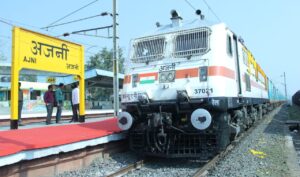Pune : PMC’s Sanitation Workers May Soon Wear GPS Bands for Enhanced Tracking Of Waste Management

PUNE: In a bid to boost operational efficiency, the Pune Municipal Corporation (PMC) has taken a pioneering step by employing GPS technology to oversee the activities of sanitation workers.
Having achieved notable success in areas like Baner and Balewadi, the PMC is poised to extend this initiative across the entire city. The upcoming month will see sanitation workers equipped with GPS bands on their wrists, enabling comprehensive tracking of their movements and tasks.
The daily waste generation in Pune reaches a staggering 2,200 tonnes, with a workforce of approximately 15,000 employees engaged in waste management. However, challenges related to negligence and administrative issues have hindered the city’s overall cleanliness. Addressing these concerns, the PMC has embraced the ‘Integrated Solid Waste Management System’ to harness the full potential of its sanitation workforce.
A trial implementation was carried out within the jurisdiction of the Aundh-Baner-Balewadi regional office. Close to 1,000 employees participated in this trial, wearing GPS bands that enabled effective monitoring. Over the span of seven months, this trial resulted in a notable upswing in sanitation worker attendance within the regional office limits. Moreover, waste collection saw a marked increase of approximately 125 tonnes.
This novel system facilitated real-time monitoring of sanitation activities, garbage collection, and waste transportation within the regional office’s boundaries. Workers received timely notifications about their assigned areas, helping them efficiently manage their tasks. The system also ensured that garbage was collected and transported from all areas, thus contributing to an enhanced level of cleanliness.
After presenting the successful trial to Commissioner Vikram Kumar in May, the PMC administration received direction to extend the experiment to the remaining 14 zonal offices. With preparations now completed, the system will encompass 14,000 employees, 673 waste transport vehicles, drivers, and plant workers, incurring an estimated cost of Rs 16 crore.
Asha Raut, Chief of PMC Solid Waste Management, emphasized, “This program will elevate work efficiency and simplify monitoring processes.”
Outlined below are the key elements of the project:
- Garbage transport vehicles will be equipped with radio frequency identification tags and GPS systems.
- Vehicles will provide real-time data on the quantity of waste transported to treatment plants and the amount processed.
- Sanitation workers will wear GPS bands on their wrists, recording work hours and travel distances.
This groundbreaking initiative by the PMC marks a significant stride toward efficient and technology-driven waste management practices, poised to create a cleaner and more organized urban environment.









